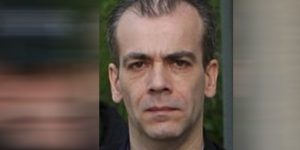
Tuttavia, l’avvocato difensore Mark Mulholland ha insistito che l’accusa non è in grado di attribuire un ruolo al suo cliente a causa della “scarsità delle prove”.
Ha anche sottolineato che la Corona non ritiene più Colin Duffy uno degli uomini che aprirono il fuoco a Massereene Barracks, mentre i due testimoni non sono riusciti a indicarlo nei processi di identificazione.
Ma, rifiutando il rilascio, il giudice Deeny dichiarato che la natura dei fatti contestati era rilevante.
Il giudice ha detto: “Questo è stato un attacco pianificato e spietato, e il richiedente sa che esiste un caso di prima facie che lo ritiene attivamente coinvolto in maniera importante in questa faccenda”.
Ha notato che l’accusa era di coinvolgimento “nella soppressione della vita umana, per motivi collegati al sostegno delle convinzioni repubblicane”.
Il giudice Deeny ha aggiunto: “Questa campagna dei repubblicani continua, con un ulteriore tragico omicidio (l’agente Ronan Kerr) avvenuto nei mesi recenti.
“Dunque, si dovrà dedurre che il suo rilascio sarebbe un rischio reale di incoraggiamento a tale campagna, cioè un rischio reale di altri reati”.
Parlando dopo l’udienza, un portavoce del gruppo Friends of Colin Duffy, ha dichiarato:
“Colin ha trascorso quasi due anni e mezzo in attesa di giudizio. Le indicazioni sono che il processo non inizierà fino al prossimo marzo. Ciò significa che Colin avrà trascorso tre anni in carcere senza essere condannato per alcun reato. Si tratta di un chiaro caso di internamento senza processo.
“Lo stato inglese ha dimostrato ancora una volta, attraverso il suo sistema giudiziario, che la politica del trattenere i repubblicani irlandesi come ostaggi politici è accettabile per loro oggi come lo era in passato.
“Nel rifiuto del rilascio di Colin, il giudice Deeny ha utilizzato una logica contorta. Dedurre che il rilascio di Colin «sarebbe un rischio reale di incoraggiamento» alla campagna armata è ridicolo e dimostra che la magistratura non ha appreso nulla dal passato. Lui è chiaramente del parere che sia giusto trattenere Colin come ostaggio politico.
“Chiunque abbia una conoscenza della storia del conflitto in Irlanda sa che è l’ingiustizia che alimenta il fuoco del conflitto. Sembra che il sistema giudiziario britannico abbia ancora bisogno di imparare la lezione”.
Bail refused once again
However, defence barrister Mark Mulholland insisted the prosecution was unable to attribute a role to his client due to “the paucity of the evidence”.
He also pointed out that the Crown no longer alleged that Colin was one of the gunmen, while two witnesses had failed to pick him out in identification processes.
But refusing bail, Mr Justice Deeny held that the nature of the alleged offences was relevant.
The judge said: “This was a successfully planned and ruthlessly executed terrorist attack, and the applicant is in the position that there is a prima facie case that he was actively involved or involved in some significant way in the joint enterprise.”
He noted the allegation was of involvement in “the taking of human life for reasons it would appear connected to support for dissident republican beliefs”.
Mr Justice Deeny added: “That dissident republican campaign continues, with a further tragic murder (Constable Ronan Kerr) in relatively recent months.
“Therefore one must infer that his release would carry a real risk of encouragement being given to that campaign, ie. the real risk of further offences.”
Speaking after the bail hearing, a spokesperson for the Friends of Colin Duffy campaign group said:
“Colin has now spent almost two and a half years on remand. The indications are that his trial will not commence until next March. This will mean that Colin will have spent three years in prison without having been convicted of any offence. It is a clear case of internment without trial.
“The British state have shown once again today, through their judiciary, that the policy of holding Irish republicans as Political Hostages is as acceptable to them today as it was in the past.
“In refusing Colin bail, Mr Justice Deeny has used a twisted sense of logic. To infer that Colin’s release “would carry a real risk of encouragement” to an armed campaign is ludicrous and shows that the judiciary have learned nothing from the past. He is clearly of the view that it is right that Colin should be detained as a political hostage.
“Anyone with an understanding of the history of conflict in Ireland knows that it is injustice that fuels the fire of conflict. It seems that the British judiciary have yet to learn that lesson.”